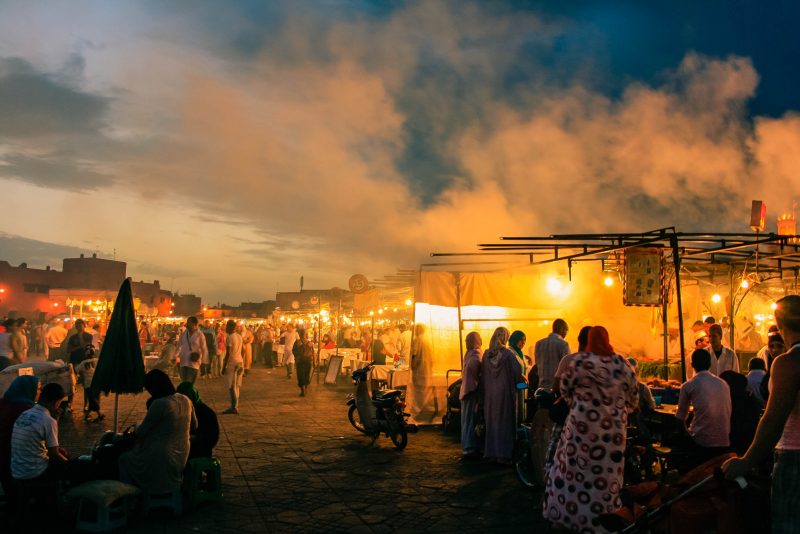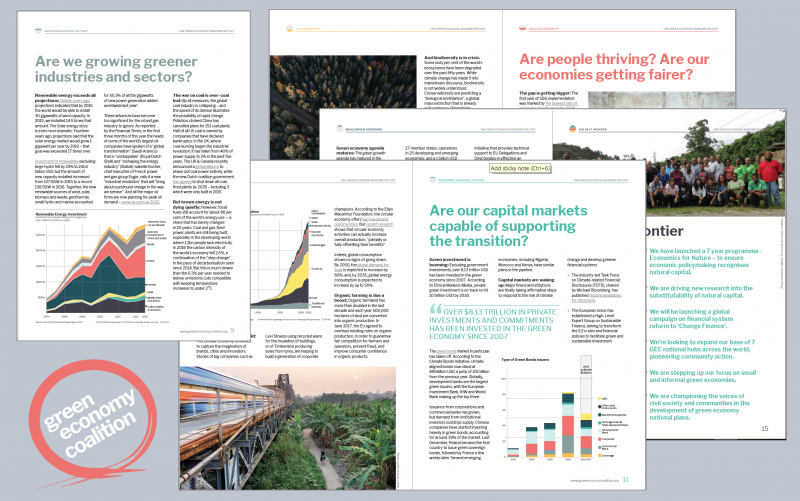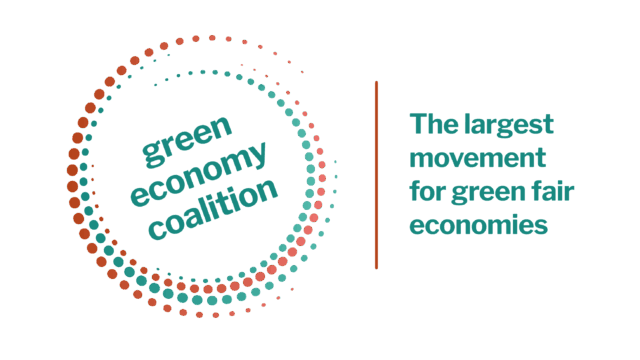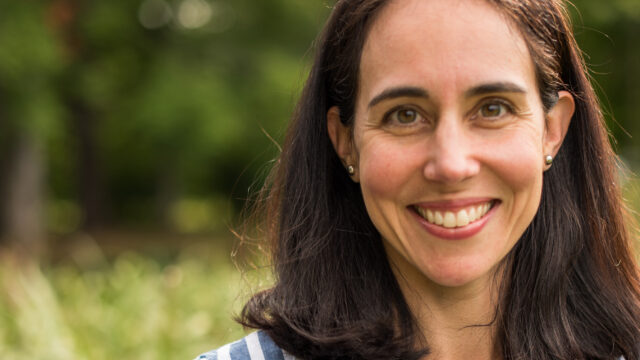Green Economy Barometer 2017
A critical review from the GEC on the trends, technologies and policies shaping the global shift towards sustainability and inclusion.

Every year, the Green Economy Coalition publishes the Green Economy Barometer, our analysis of the state of the global movement towards a fair, sustainable future. The Barometer tracks the transition, both celebrating the successes, and calling attention to challenges yet to be overcome. It's packed full of key stats, facts, and highlights from 2017, and it casts an eye ahead to what the next twelve months have in store.
The Barometer argues that the light on the global green economy horizon has brightened this year: markets are booming; new narratives are emerging; investment is flowing. Tipping points in energy, transport, and global leadership may well be arriving. But that same story looks different from the ground: young people need jobs; biodiversity is in crisis; and rural economies are being left behind.
The global view
Our global geopolitical bedrock has shifted in the last eighteen months. Our world is feeling more fragmented, more unstable. Across the globe, headlines speak of nationalism and secessionism, of humanitarian crises and natural disasters, of voters feeling let down by their political systems.
But from these fissures, something new is emerging. A different story is taking shape – one of renewal, hope and collaboration. French President Emmanuel Macron has pledged to “Make Our Planet Great Again” and announced a raft of ambitious environmental policies – including the creation of the Ministry for an Inclusive and Ecological Transition. Jacinda Ardern, the world’s youngest female leader, has won office in New Zealand with an ambitious environmental agenda. China, now a green technology superpower, sees the green economy as an essential part of their national development strategy and emergent global leadership.
“ But, let us be clear: The brown economy is not dying quietly. Oil, gas and coal still account for about 86% of the world's energy.”
Clean and green markets are booming. Sales of electric vehicles in 2016 jumped 42% from the previous year, growing eight times faster than the overall market. The lithium-ion batteries that power them are getting cheaper too – prices are down 75% since 2011 – opening the way to a massive increase in energy storage capacity. From cook stoves to electric vehicles, from solar lighting to smart homes, green solutions are flooding into everyday life.
But, let us be clear: The brown economy is not dying quietly. Oil, gas and coal still account for about 86% of the energy keeping the world’s lights on, cars running and homes warm — a share that has barely changed in 25 years. Coal and gas-fired power plants are still being built, especially in developing countries. GDP growth continues to dominate government decision-making, despite the glut of new sustainability indicators and performance metrics. Most of our natural and societal assets have a value of zero in the economy. Ten years on from the financial crisis, our capital markets remain unchanged.

Views from the ground
Our networks and national hubs are restless for change. They are cheered by the plethora of national action plans: Peru has signed off on their National Guidelines for Green Growth; Uganda has a draft Green Growth Development Strategy and Climate Change Law; the UK has published its Clean Growth Strategy; India has set ambitious mitigation targets as a part of the COP21 Paris Agreement. But our members also report that laws and frameworks for protecting nature are being dismantled in the name of economic progress. From renewable incentives in South Africa to Environmental Impact Assessment procedures in India, nature is under threat.
Our partners speak of their growing frustration as big green ‘bankable’ projects are focussing on urban centres, large renewable projects and the transport sector. Little, if any, investment is being directed towards rural economies, and smallholder farmers are being left behind.
We are also hearing that the world of work is changing. Jobless growth is no longer a distant threat. Despite GDP growth in many countries, there is a growing employment crisis – particularly for the next generation. The advent of automation threatens to leave millions of poor, low-skilled workers around the world out of work.
The disconnect between the global picture and the view from the ground should sound alarm bells. The green transition is underway and gathering speed. But if it fails to be relevant to people’s lives – their homes, health, jobs, security – the cracks in the geopolitical landscape will only become deeper and wider.


